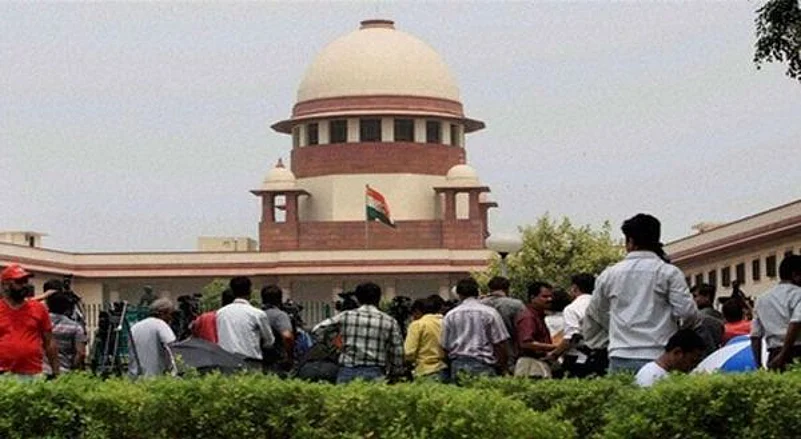A nine-judge constitution bench said on Thursday that Right to Privacy is a Fundamental Right as guaranteed by the Constitution while hearing a batch of petitions in the Aadhaar case.
A nine-judge Constitution bench headed by Chief Justice J S Khehar ruled that "right to privacy is an intrinsic part of Right to Life and Personal Liberty under Article 21 and entire Part III of the Constitution".
The ruling on the highly contentious issue was to deal with a batch of petitions challenging the Centre's move to make Aadhaar mandatory for availing the benefits of various social welfare schemes.
Others members of the bench comprising Justices J Chelameswar, S A Bobde, R K Agrawal, R F Nariman, A M Sapre, D Y Chandrachud, S K Kaul and S Abdul Nazeer also shared the same view.
The nine judges unanimously overruled the two earlier judgements of the apex court that Right to Privacy is not protected under the Constitution.
The bench overruled the M P Sharma verdict of 1950 and that of Kharak Singh of 1960.
The judgement in the Kharak Singh case was pronounced by eight judges and in M P Sharma it was delivered by six judges.
Justice Khehar, who read the operative portion of the judgement, said the subsequent verdicts pronounced after M P Sharma and Kharak Singh have laid down the correct position of the law.
Before pronouncing the judgement, the CJI said that among the nine judges some of them have authored different orders.
A smaller bench of five-judge bench will now hear whether the Aadhaar Act violates the right to privacy, said senior lawyer Prashant Bhushan.
The ruling possibly means unreasonable restrictions (breaching privacy) under laws will be struck down, said Bhushan.
“The bench has not said anything about Aadhaar. The court has only ruled on right to privacy,” he said.
"It's a setback for the government, which urged that the right to privacy is not a fundamental right," he added.
It is not clear what impact will the ruling have, Bhushan told the media outside the Supreme Court.
Welcoming the verdict, Congress's chief spokesperson Randeep Singh Surjewala tweeted: “Path breaking and seminal judgement. A great victory for liberty and freedom. The Supreme Court rejects Modi government’s attempt to whittle down the right to privacy.”
On August 2, the nine-judge Constitution bench of the Supreme Court reserved its judgement over issue of whether Right To Privacy, which comes under Right To Life and Liberty, is Fundamental Right or not.
On July 26, the Centre told the apex court that there is a Fundamental Right to privacy, but is a "wholly qualified right".
The Centre made this submission before the nine-judge Constitution bench that is hearing the Aadhaar Card privacy matter.
Attorney General KK Venugopal told the apex court that "privacy, as a fundamental right, could have been mentioned in Article 21, but has been omitted. Right to life transcends right to privacy".
In special circumstances, government can interfere in a matter that comes under a wholly qualified right. An absolute right cannot be reduced or amended.
Earlier on July 20, all the petitioners had completed their argument in the apex court. The petitioners contested that the twelve-digit biometric unique identification card raises privacy threat.
On June 10, the top court had ruled that from July 1 onward, every person eligible to obtain Aadhar card must quote their Aadhaar number or their Aadhaar Enrolment ID number for filing of Income Tax Returns as well as for applications for Permanent Account Number (PAN).
(With Agency Inputs)


























